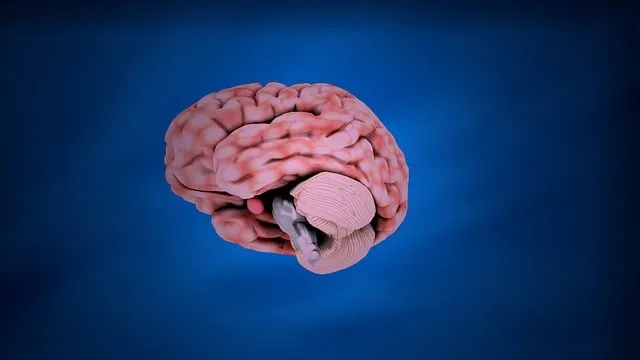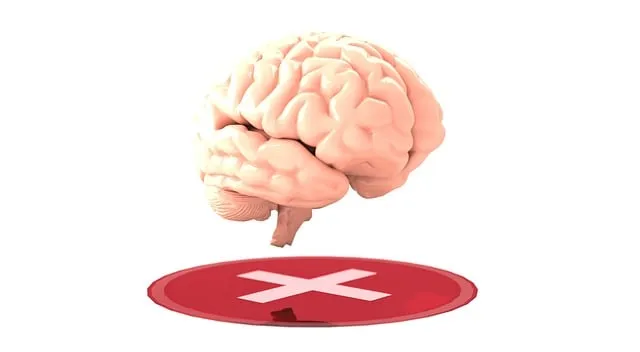Community outreach programs in Castle Rock, like those offered by Kaiser, are vital for addressing unique neighborhood mental health needs, focusing on cultural coping skills, emotional healing, and stress management. These initiatives bridge healthcare access gaps, especially regarding Kaiser's mental health coverage, through workshops, support groups, and accessible counseling. By promoting early intervention and breaking down stigma, these programs enhance resilience and social connections, creating a healthier environment for all. The partnership between Castle Rock and Kaiser demonstrates holistic care through resource sharing, including tailored education and risk management support. Effective outreach relies on public awareness campaigns and healthcare provider burnout prevention, ensuring sustainable care quality improvements in underserved communities like Castle Rock, with a key focus on understanding whether Kaiser covers mental health services within these initiatives.
Community outreach programs play a pivotal role in enhancing mental well-being, especially in underserved areas. This article delves into the significance of these initiatives, highlighting successful collaborations like Castle Rock and Kaiser’s partnership for comprehensive mental health care. We explore key strategies for effective implementation and emphasize the importance of measuring success through evaluation metrics. Understanding community outreach starts with defining tailored mental health programs, addressing gaps left by traditional healthcare systems, especially in regions where access to services is limited, such as examining how Castle Rock does Kaiser cover mental health.
- Understanding Community Outreach: Defining Mental Health Programs
- The Role of Local Initiatives in Addressing Mental Well-being
- Castle Rock and Kaiser: A Collaboration for Comprehensive Care
- Strategies for Effective Program Implementation
- Measuring Success: Evaluating the Impact on Community Mental Health
Understanding Community Outreach: Defining Mental Health Programs

Community outreach programs play a pivotal role in addressing mental health concerns within various neighborhoods. Understanding the unique needs and challenges faced by each community is essential to designing effective initiatives. When it comes to mental health, these programs aim to promote coping skills development, facilitate emotional healing processes, and teach stress management techniques tailored to the specific cultural and social context.
In areas like Castle Rock, where Kaiser covers mental health services, outreach can bridge the gap between healthcare access and community needs. By integrating educational workshops, support groups, and accessible counseling services into local settings, these programs empower individuals with the knowledge and tools to navigate their mental well-being proactively. This approach ensures that resources are not only available but also culturally sensitive and relevant to the communities they serve.
The Role of Local Initiatives in Addressing Mental Well-being

In many communities, local initiatives play a pivotal role in addressing mental well-being, often filling gaps left by larger healthcare systems. For instance, in areas like Castle Rock, where Kaiser’s mental health coverage might have limitations, community outreach programs step in to bridge this gap. These initiatives focus on empathy building strategies and stress management workshops that are easily accessible to all, regardless of their insurance status. By organizing these sessions, organizations foster an environment conducive to open discussions about mental health challenges, breaking down stigma and promoting early intervention.
Moreover, incorporating mindfulness meditation into these outreach programs has proven effective in reducing anxiety and depression symptoms. Through simple yet powerful practices, individuals learn tools to manage stress effectively on a daily basis. Such community-driven efforts not only enhance mental resilience but also strengthen social connections, ultimately contributing to a healthier, more supportive environment for everyone, including those whose access to traditional mental health services might be limited.
Castle Rock and Kaiser: A Collaboration for Comprehensive Care

Castle Rock’s collaboration with Kaiser showcases a powerful example of comprehensive care in action. This partnership focuses on providing holistic well-being solutions, including mental health services, to their communities. By combining resources and expertise, they offer a wide range of programs designed to cater to diverse needs. For instance, Castle Rock does Kaiser cover mental health? Absolutely! Their joint initiatives encompass mental health education programs tailored to both general and at-risk populations. These programs are meticulously designed to promote awareness, encourage open dialogue, and equip individuals with coping strategies for better mental well-being.
Beyond education, the collaboration emphasizes risk management planning for mental health professionals, ensuring a safe and supportive environment for practitioners. Additionally, they incorporate empathy-building strategies within their outreach efforts, fostering deeper connections between healthcare providers and community members. This collaborative approach not only addresses immediate mental health concerns but also aims to create lasting positive impacts through comprehensive and accessible care.
Strategies for Effective Program Implementation

Effective community outreach program implementation involves a strategic approach tailored to engage and connect with the target audience. One key strategy is public awareness campaigns development, leveraging various media and channels to dispel myths, provide valuable information, and foster understanding of mental health issues, especially in areas like Castle Rock where Kaiser’s coverage may have gaps. This can include utilizing social media platforms, local events, and partnerships with community leaders to amplify the message and ensure accessibility for all.
Additionally, burnout prevention strategies for healthcare providers are essential components of successful outreach initiatives. By promoting emotional intelligence and providing resources for self-care, organizations can better equip their staff to engage meaningfully in community efforts. This not only enhances the quality of care delivered but also strengthens the overall sustainability of the program over time.
Measuring Success: Evaluating the Impact on Community Mental Health

Evaluating the impact of community outreach programs on mental health is crucial to understanding their success and identifying areas for improvement. Metrics such as participant satisfaction, engagement in services, and changes in mental health symptoms can provide valuable insights. For instance, programs focused on mood management, depression prevention, and coping skills development might measure reductions in anxiety levels or an increase in participants’ ability to cope with stressors.
In the context of Castle Rock, examining whether Kaiser covers mental health services as part of these outreach initiatives is essential. By assessing the accessibility and quality of mental health support provided, communities can ensure that their programs are effectively addressing local needs. This includes tracking improvements in community well-being and overall mental resilience, demonstrating the tangible impact of these outreach efforts.
Community outreach programs, as exemplified by the successful collaboration between Castle Rock and Kaiser, play a pivotal role in enhancing mental well-being. By integrating comprehensive care models, these initiatives ensure that mental health services reach underserved populations. Through strategic implementation and focused evaluation, such programs can significantly improve community mental health outcomes, making them essential components of modern healthcare systems. Understanding and replicating effective models, like the one between Castle Rock and Kaiser, can lead to broader access to quality mental health care.





